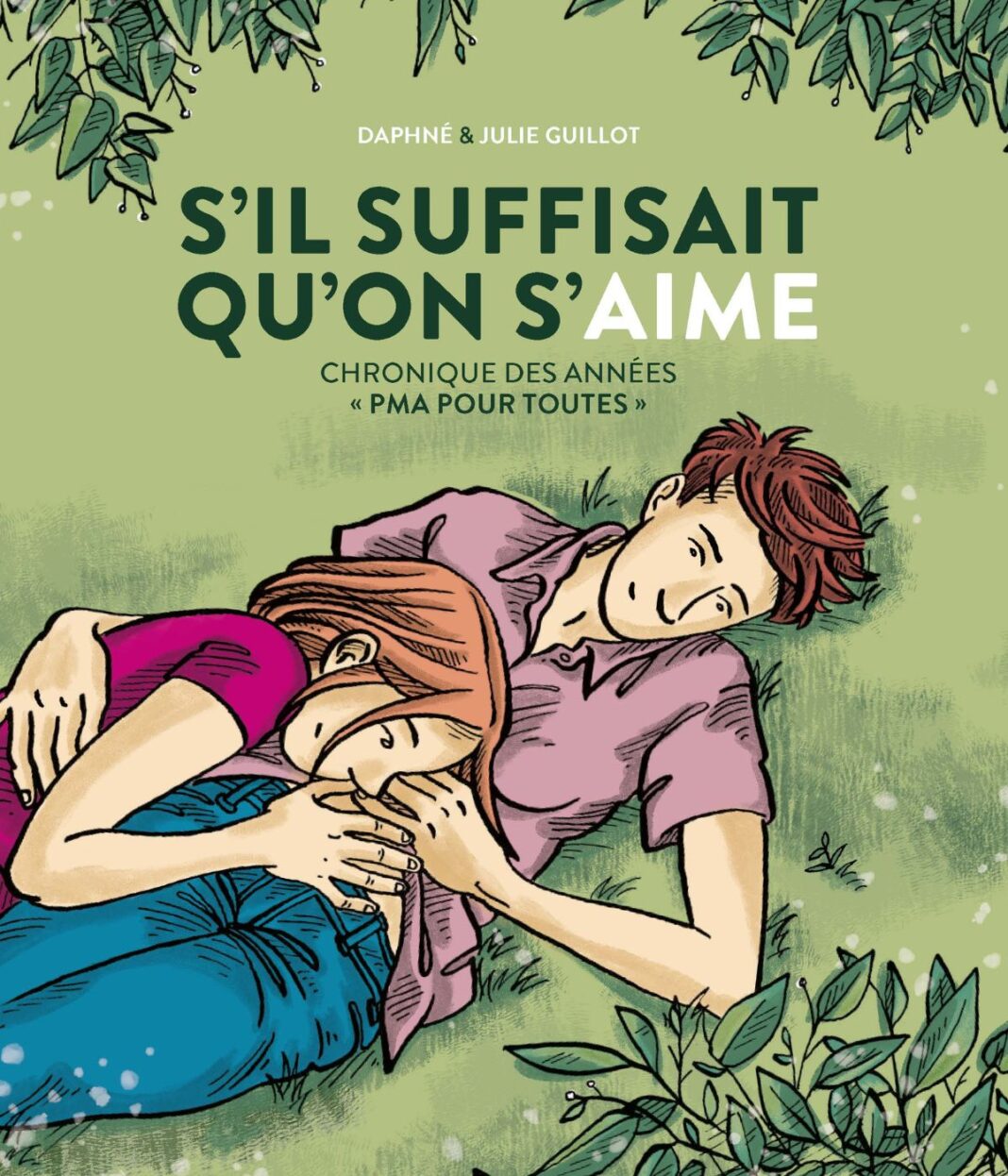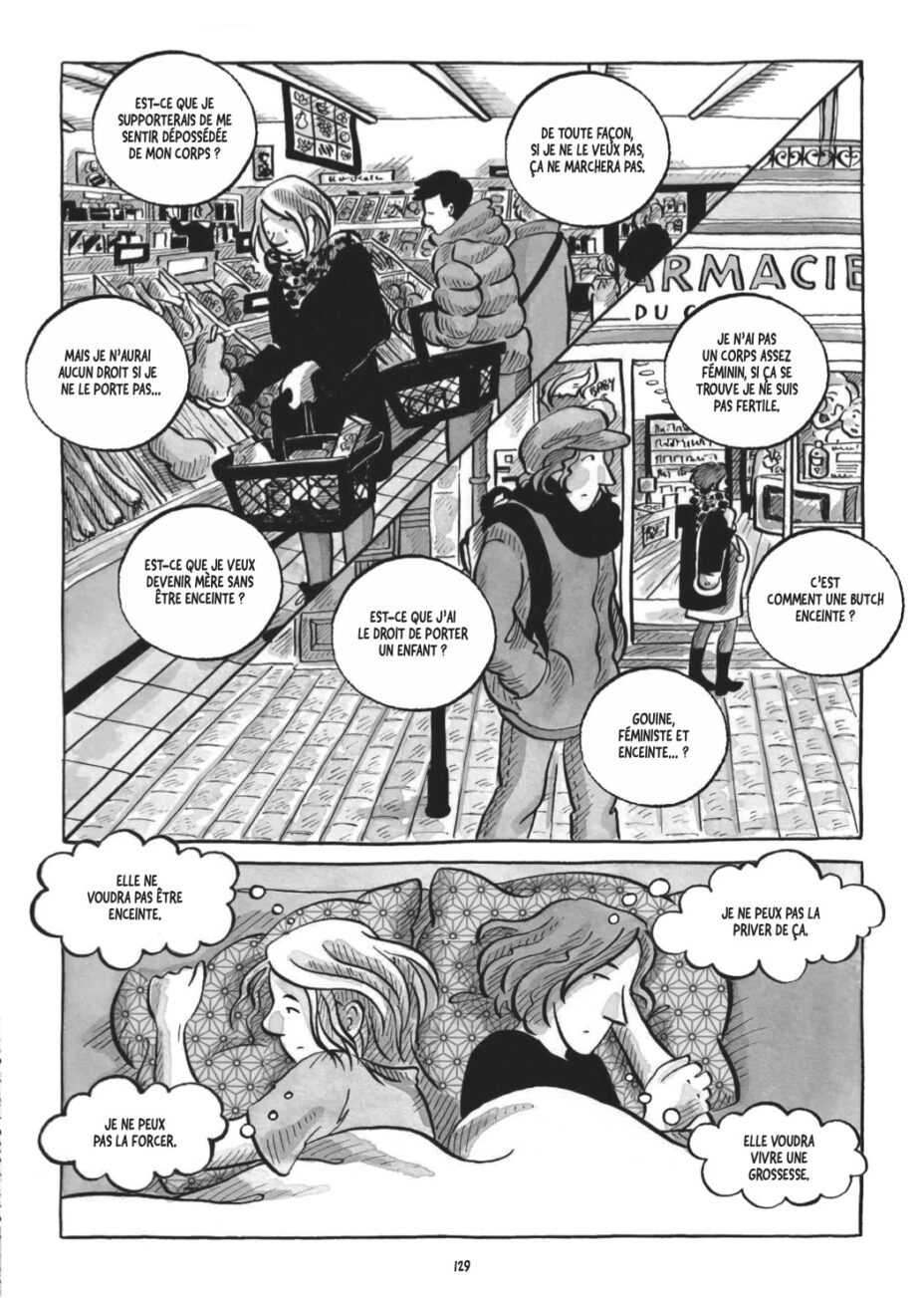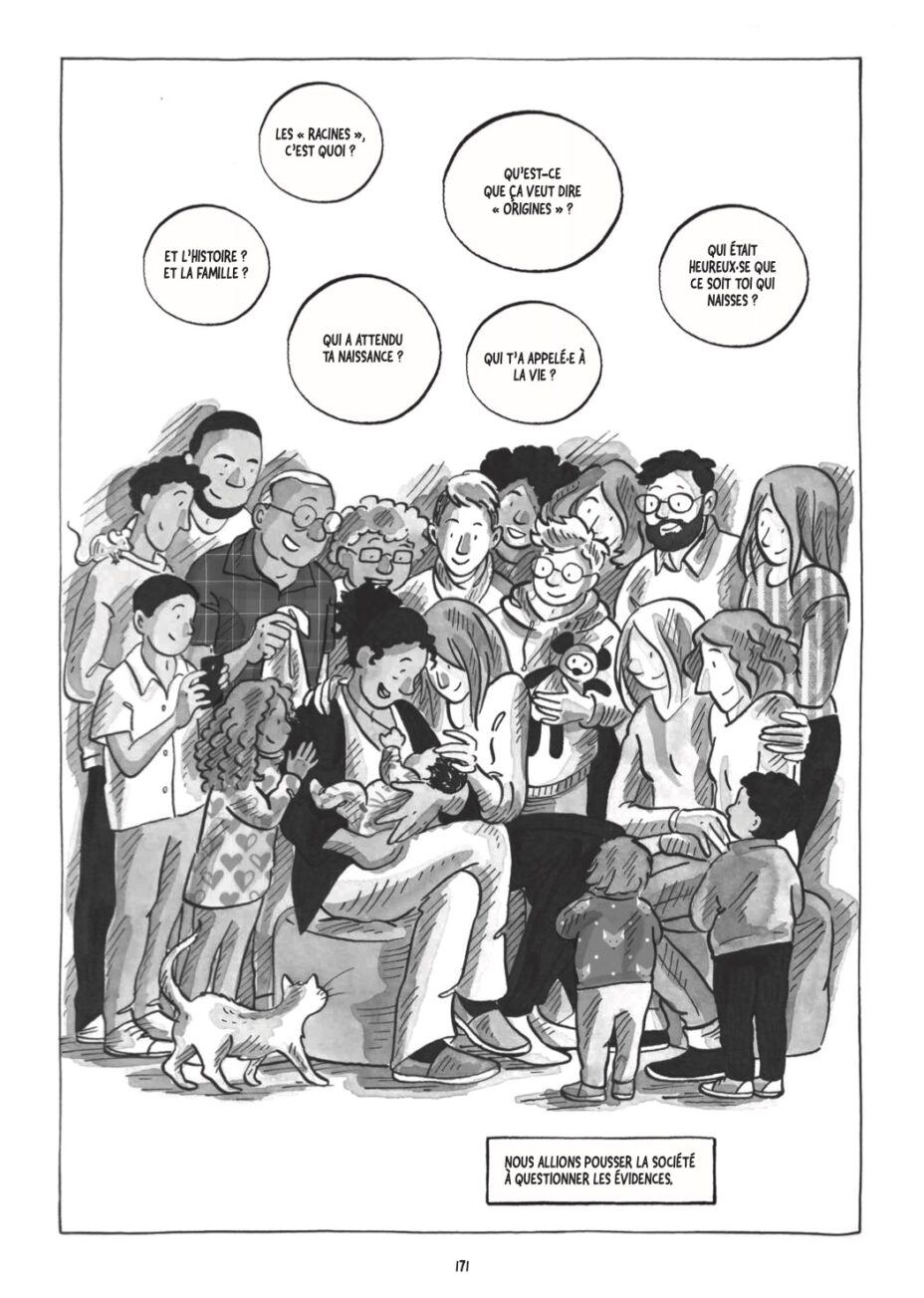It’s a comic about PMA, but above all much more.
Because it wasn’t for Daphné and Julie Guillot, respectively author and designer of If it were enough to loveto just talk about their family history, their boring medical procedures, their travels abroad, their doubts and the feeling of hiding, which many women have already told in all possible formats, from comics to testimonials, via podcasts or miniseries.
In If it were enough to lovethey return to eight years of hopes, struggles, disappointments and setbacks on expanding access to medically assisted procreation long given only to heterosexual couples. There they crossed their intimate story, that of their couple, with that of an advancement several times postponed, sacrificed, which became a progressive guarantee to be elected, then passed despite everything by a measure in 2021 to fill the corporate budget of a first presidential term.

A good booster shot for all those who have forgotten that the fight for the opening of the PMA has not been done without pain and without sacrifices. That this incomplete law, which affects lesbian couples and single women, has left trans people on the sidelines. It has also established a separate parentage regime for female couples, who are forced to go through a notarial process with advance joint recognition (RCA) while heterosexual couples – whether or not they have resorted to insemination or in vitro fertilization with donation – can simply go to the Common Hall to acknowledge their child.
And this without counting on this concluding observation one year after the approval of the law: some, when they have the means, continue to go abroad in the face of extremely long waiting times to obtain a gamete donation.
Recounting the years of struggle for access to PMA
Incredibly well documented, If it were enough to love it also constitutes a rich snapshot of what France has gone through (and is still going through) in terms of LGBTQ-phobic reactionary waves and moral panic, first about the right to marry, then to found a family, and today towards trans people.
By mixing the intimate with the political, the comics also show the persistent difficulty of projecting themselves into a family schema other than the traditional father-mother-children pairing, when representations of lesbian motherhood or trans parenthood, or even the entourage, are missing, however benevolent, always brings you back to the father’s absence or the donor’s question. Despite a relative tolerance for homoparental families in our society, it is clear that moving away from the nuclear family model is far from simple.

Throughout the story, Julie and Daphne, the two protagonists, are crossed by questions and doubts, about their desire for children, about the education they want to give, about the consequences of environmental lesbophobia on their lives.
In this, If it were enough to love it will certainly resonate very strongly with the experience of many LGBTQI+ people, but we also hope it leads to an understanding that this fight for sexual and reproductive rights should be brought forward and supported by all.

Credit: Steinkis
Source: Madmoizelle
Elizabeth Cabrera is an author and journalist who writes for The Fashion Vibes. With a talent for staying up-to-date on the latest news and trends, Elizabeth is dedicated to delivering informative and engaging articles that keep readers informed on the latest developments.




